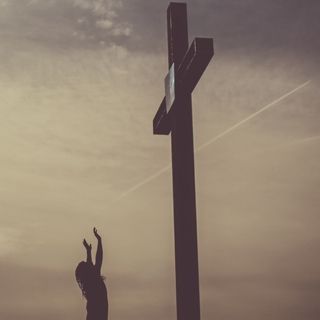
Remembering the unreached during Lent
By Josie Oldenburg, SEND Communications — With its ever-changing date, Easter can sneak up on us. The candy eggs and stuffed bunnies piled on store shelves need not be our only reminders. The practice of Lent gives believers six weeks to prepare to mourn the death and celebrate the resurrection of our Savior.
Jesus' death and resurrection are the foundational facts underlying all that SEND does. Without Good Friday and Easter, we would have no Good News to share with the unreached. Lent, then, is a natural season to focus both on what Jesus did for us personally and on developing a heart, like his, for the lost throughout our world. Here are some ideas for Lenten practices that might help deepen your commitment to the Great Commission:
Pray daily.
Add regular intercession for an unreached people group to your prayer times through Easter. Click here to pick a group and find information to guide your prayers.
Encourage others.
Christian holidays can be difficult reminders to missionaries that they live far from family and friends. Some have the added struggle of serving in cultures that do not recognize these days as distinct in any way. In the weeks leading up to Easter, make it your practice to write letters or send emails to missionaries, encouraging them in their work and letting them know you are praying for them during this holy season. To make it easy, you can email SEND workers through our web site.

Focus your mind.
Pick key verses that reflect Jesus’ heart for the world. Memorize and intentionally meditate on them for the next six weeks. Here are a few to get you started:
He said to them, “Thus it is written, that the Christ would suffer and rise again from the dead the third day, and that repentance for forgiveness of sins would be proclaimed in His name to all the nations, beginning from Jerusalem.” Luke 24:46-47
After these things I looked, and behold, a great multitude which no one could count, from every nation and all tribes and peoples and tongues, standing before the throne and before the Lamb, clothed in white robes, and palm branches were in their hands; and they cry out with a loud voice, saying, “Salvation to our God who sits on the throne, and to the Lamb.” Revelation 7: 9-10
The Lord is not slow in keeping his promise, as some understand slowness. Instead he is patient with you, not wanting anyone to perish, but everyone to come to repentance. 2 Peter 3:9
Give thanks to the LORD, call on his name; make known among the nations what he has done. Psalm 105:1
Give up, then give.
Many people abstain from something — coffee, sweets, eating out — during Lent. Consider donating the money saved by skipping these things to a missions project.
Put down the remote and pick up a book.
Take a break from watching TV in the evenings and instead read a missionary biography or another book about God’s work through missions. Two recommended by SEND staff are “What Is the Mission of the Church?” and “Reaching and Teaching: A Call to Great Commission Obedience. ”
Turn off the radio.
Instead, tune in to the Global Missions Podcast. This show, hosted by SEND Canada's director, has 46 episodes to choose from — one for each day between now and April 16. If you listen to them all, you’ll gain great insight into current trends in missions, how to care for missionaries and how to discuss the gospel with your neighbors who come from a different cultural background.
As Easter approaches, we hope these ideas will help you use your time, talents, and treasure to focus on Jesus' death, burial and resurrection, the foundation of his Good News for all people.
Additional Posts




